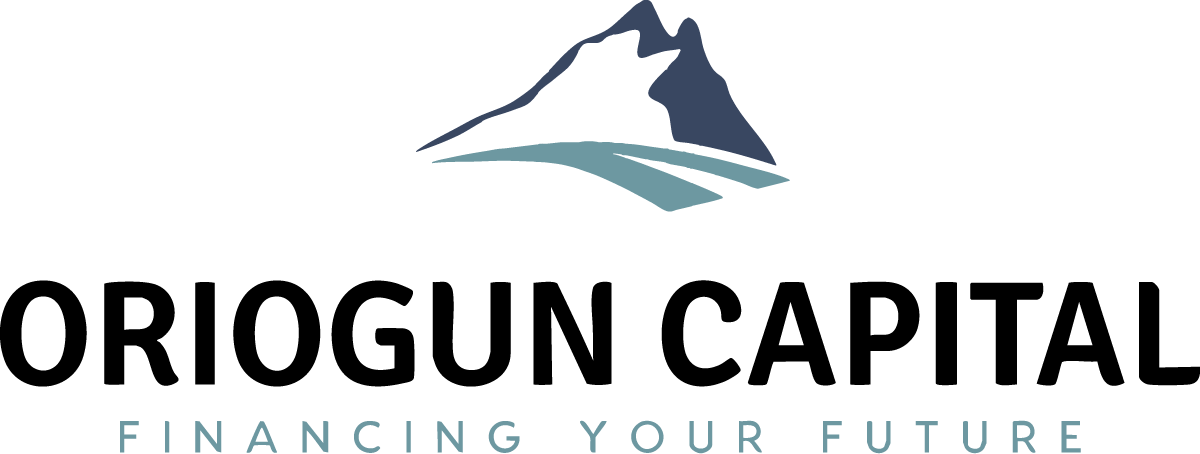Many savvy investors are exploring the benefits of a DSCR loan for rental property financing.…
DSCR Loans: Unlocking New Opportunities for Real Estate Investors
The real estate market is a dynamic and exciting world. Savvy investors are always seeking innovative financing options to expand their portfolios and maximize returns. That’s where the DSCR loan comes in.
Unlike traditional mortgages that often involve lengthy income verification processes, a DSCR loan focuses on a property’s potential rental income rather than the borrower’s personal financial history. This makes it an ideal solution for experienced real estate investors and those seeking to grow their property holdings. Many investors are seeking more than just a loan, and a DSCR loan may be a good option.
Let’s uncover what DSCR loans really are and explore why they might be the right choice for you.
Understanding DSCR Loans
A DSCR loan, short for Debt Service Coverage Ratio loan, is a type of non-qualified mortgage (non-QM) designed specifically for real estate investors. Non-QM loans don’t follow traditional Fannie Mae or Freddie Mac guidelines, making them perfect for those who don’t quite fit conventional financing. This is especially helpful for investors who write off expenses on their properties and might struggle to prove their full income through W-2s or pay stubs. In essence, it offers a solution based on the projected cash flow from your investment property, simplifying the process and broadening your investment possibilities.
DSCR Loan Requirements
DSCR loans, also known as debt-service coverage ratio loans, are a popular financing option for real estate investors because they offer flexible qualification requirements. Instead of relying heavily on your personal income, DSCR loans primarily consider the income-generating potential of the investment property itself. Let’s delve into the specific requirements you need to meet to secure a DSCR loan:
Debt Service Coverage Ratio (DSCR)
The most crucial factor in DSCR loan qualification is your debt service coverage ratio. This ratio compares the property’s projected net operating income (NOI) to its monthly mortgage payments. Lenders typically look for a DSCR of 1.2 or higher, indicating that the property generates sufficient income to cover the mortgage and other expenses comfortably. A higher DSCR strengthens your loan application and may even qualify you for lower interest rates.
Credit Score and History
While DSCR loans are more forgiving than traditional mortgages, maintaining a good credit score is still important. Most lenders require a minimum credit score of 620, although this can vary. A strong credit history demonstrates your financial responsibility and ability to manage debt effectively, increasing your chances of loan approval.
Down Payment
Similar to conventional loans, DSCR loans often require a down payment. The typical down payment for investment properties ranges from 20% to 25%. However, some lenders may offer lower down payment options, especially for borrowers with exceptional credit or a high DSCR.
How DSCR Loans Work
The magic of a DSCR loan lies in the Debt Service Coverage Ratio itself. It acts as the key metric for lenders to assess an investment property’s financial viability and a borrower’s ability to repay the loan. Think of it like this – the ratio reflects the relationship between the property’s projected rental income and its total debt obligations.
A healthy DSCR ratio is generally considered to be 1.0 or higher. This is calculated by dividing the monthly rental income by the sum of Principal, Interest, Taxes, Insurance, and Association Dues (PITI + HOA fees). This indicates that the rental income comfortably covers all the related expenses, giving the lender confidence in the investment.
Now, while lenders can sometimes be flexible depending on other factors, a DSCR ratio of 1.25 is often the gold standard. This not only shows that the property can easily cover its costs and service coverage is adequate but also provides a cushion for potential unforeseen expenses.
Calculating the DSCR Ratio
Calculating the DSCR ratio is a fairly simple process. Let’s look at an example.
Imagine you are looking to buy a property for $250,000 with a monthly rental income of $2,500. Let’s say the mortgage payments (Principal & Interest) come out to be $1,500 a month and taxes, insurance, and HOA fees are an additional $500.
Here’s how we calculate the DSCR:
- Monthly Rental Income: $2,500
- Monthly Mortgage Payment (Principal & Interest): $1,500
- Monthly Taxes, Insurance & HOA fees (T.I. & HOA) : $500
- Total Monthly Expenses (PITI & HOA) $2,000 ( $1,500 + $500)
DSCR = Monthly Rental Income / Total Monthly Expenses
DSCR = $2,500 /$2,000 = 1.25
In this scenario, the property boasts a DSCR ratio of 1.25, making it a financially healthy prospect that easily covers its monthly debt obligations and provides a 25% buffer. To explore more scenarios, check out a DSCR Loan Calculator.
Advantages of a DSCR Loan
This approach brings a breath of fresh air to real estate investment. Instead of traditional income verification, which may not fully represent your true earnings due to business expenses, a DSCR loan emphasizes the potential of the property itself.
Let’s take a look at some key advantages DSCR loans offer investors.
Easier Qualification
Qualifying for a DSCR loan is generally more straightforward than conventional mortgages. Since income isn’t the primary focus, you bypass the need to submit stacks of tax returns, employment verification, or complicated financial statements. This is particularly appealing for investors with various income streams or those who utilize significant deductions that impact their overall income on paper. As long as the investment property’s projected rental income looks promising, you are good to go.
Fewer Documentation Requirements
Imagine a world with fewer paperwork headaches. That’s a significant advantage with DSCR loans. Instead of endless financial documents, lenders mainly concentrate on verifying the potential rental income through appraisals or market rent comparisons.
No Limits on Number of DSCR Loans
DSCR loans give you the freedom to expand your real estate empire. This is fantastic for investors who manage multiple income-generating properties or have ambitions to add more. DSCR loans do not usually restrict the number of financed properties you can own, encouraging expansion, and diversification within your portfolio. An investor can secure bank statement loans, for example, as one of many DSCR loans in their portfolio.
Quicker Closing Times
Because income verification and extensive paperwork are minimal, DSCR loans generally have faster closing times than conventional loans. With quicker closing times, it can take less time for the property to generate income. This is advantageous for savvy investors as it minimizes the time it takes to realize a return on their investments.
Disadvantages of a DSCR Loan
But every rose has its thorn, and DSCR loans aren’t without their downsides. Here is a DSCR loans overview, highlighting the cons.
Larger Down Payment Requirements
While DSCR loans open the doors to exciting opportunities, they usually require a more significant upfront investment. Down payment requirements are generally higher than those associated with traditional mortgages. So be prepared to potentially bring a bigger chunk of change to the table.
Potentially Higher Interest Rates
Lenders may see DSCR loans as slightly riskier compared to conventional mortgages that factor in the borrower’s complete financial history. This can sometimes translate to higher interest rates, ultimately impacting the overall cost of financing your investment. Remember, the world of mortgage rates is constantly changing. Carefully comparing different lender offerings will be crucial.
Who Can Benefit From a DSCR Loan?
DSCR loans, also known as debt service coverage ratio loans, are a popular financing option for real estate investors because they offer several advantages over traditional mortgages. Unlike conventional loans, DSCR loans don’t rely heavily on your personal income. Instead, these loans are primarily based on the cash flow potential of the investment property. This makes them an attractive option for a variety of borrowers, particularly those who may not qualify for a traditional loan. Here are a few examples:
Self-Employed Borrowers and Freelancers
DSCR loans are ideal for self-employed borrowers and freelancers who often face challenges when trying to secure financing with traditional lenders. Because DSCR loans focus on the property’s income rather than the borrower’s, fluctuating or difficult-to-verify income is less of an obstacle.
Real Estate Investors Seeking Flexibility
Investment property DSCR loans offer real estate investors the flexibility to expand their portfolios without having their personal income limit their buying power. This can be particularly beneficial for investors looking to secure multiple rental properties.
Foreign National and ITIN Borrowers
DSCR loans can be a great option for ITIN borrowers or foreign nationals who may not have a social security number but have the funds to purchase an investment property in the United States.
Tips for Getting Approved for a DSCR Loan
Debt service coverage ratio (DSCR) loans are a popular financing option for real estate investors because they offer flexible qualification requirements. Instead of focusing on your personal income, DSCR loans primarily consider the income-generating potential of the investment property. However, while the qualification criteria may be more lenient, meeting the lender’s requirements is still essential. Here are some valuable tips to increase your chances of DSCR loan approval:
- Maximize Your DSCR: Lenders typically seek a DSCR of 1.2 or higher, meaning the property’s rental income should be at least 1.2 times the mortgage payment. To improve your DSCR, consider setting competitive rental rates, minimizing operating expenses, and exploring avenues to increase rental income.
- Maintain a Healthy Credit Score: While DSCR loans prioritize property income, your creditworthiness remains a factor. A higher credit score demonstrates financial responsibility and can improve your chances of loan approval and favorable terms. Aim for a credit score of 680 or above. If your score is lower, consider improving your credit score before applying.
- Gather Comprehensive Financial Documentation: Lenders require a clear picture of your financial standing. Prepare detailed financial documents, including recent tax returns, bank statements, and proof of income. Having your financials in order streamlines the application process and demonstrates transparency to the lender.
- Shop Around for the Right Lender: Not all lenders have the same DSCR loan requirements. Research and compare different lenders specializing in DSCR loans. Consider factors like interest rates, loan terms, and lender fees to find the best fit for your investment strategy. Consulting with a mortgage broker can provide valuable insights and save you time during the lender selection process.
Conclusion
DSCR loans are a unique option in the realm of real estate finance. The DSCR loan shifts the emphasis away from personal income toward the inherent earning power of the investment itself. This strategy holds great promise for experienced investors seeking streamlined processes and multiple property financing options, allowing for portfolio expansion. However, every investment strategy comes with a balance of pros and cons. Carefully consider if the flexibility, higher down payment requirements, and interest rates of the DSCR loan align with your investment goals. This evaluation process will help you navigate your next smart move in the real estate world.
FAQs About DSCR Loan
How does a DSCR loan work?
A DSCR loan focuses on the income potential of your rental property rather than relying heavily on your personal income. Lenders look at the Debt Service Coverage Ratio (DSCR), calculated by dividing the property’s monthly rental income by its total monthly expenses (PITI and HOA). A ratio of 1.0 or higher usually signifies that the property’s rental income is enough to cover the associated expenses, indicating a solid investment opportunity.
How do I qualify for a DSCR loan?
While each lender has specific requirements, a few common factors are:
- DSCR: Typically a minimum of 1.0 – but higher is always better.
- Credit Score: Varies but often a score of 620 or above.
- Down Payment: Expect a significant down payment – commonly at least 20% or more.
Keep in mind that lenders might offer some flexibility based on your creditworthiness and other individual factors.
What is the downside of a DSCR loan?
Although DSCR loans offer unique advantages, consider the following potential drawbacks:
- Down Payment: The down payment requirement, typically 20% or higher, could pose a challenge for some.
- Interest Rates: Lenders may charge slightly higher interest rates because a DSCR loan places more emphasis on property performance, making it different from conventional loans.
Are DSCR loans easy to get?
Generally, yes, especially compared to traditional mortgages that demand lots of personal financial documentation. A DSCR loan simplifies the process by placing less importance on your income history and concentrating more on the property’s income potential. While they are generally easier to obtain, it’s crucial to remember that lenders have varying criteria, and meeting their DSCR ratio and other specific requirements remains crucial for approval.







